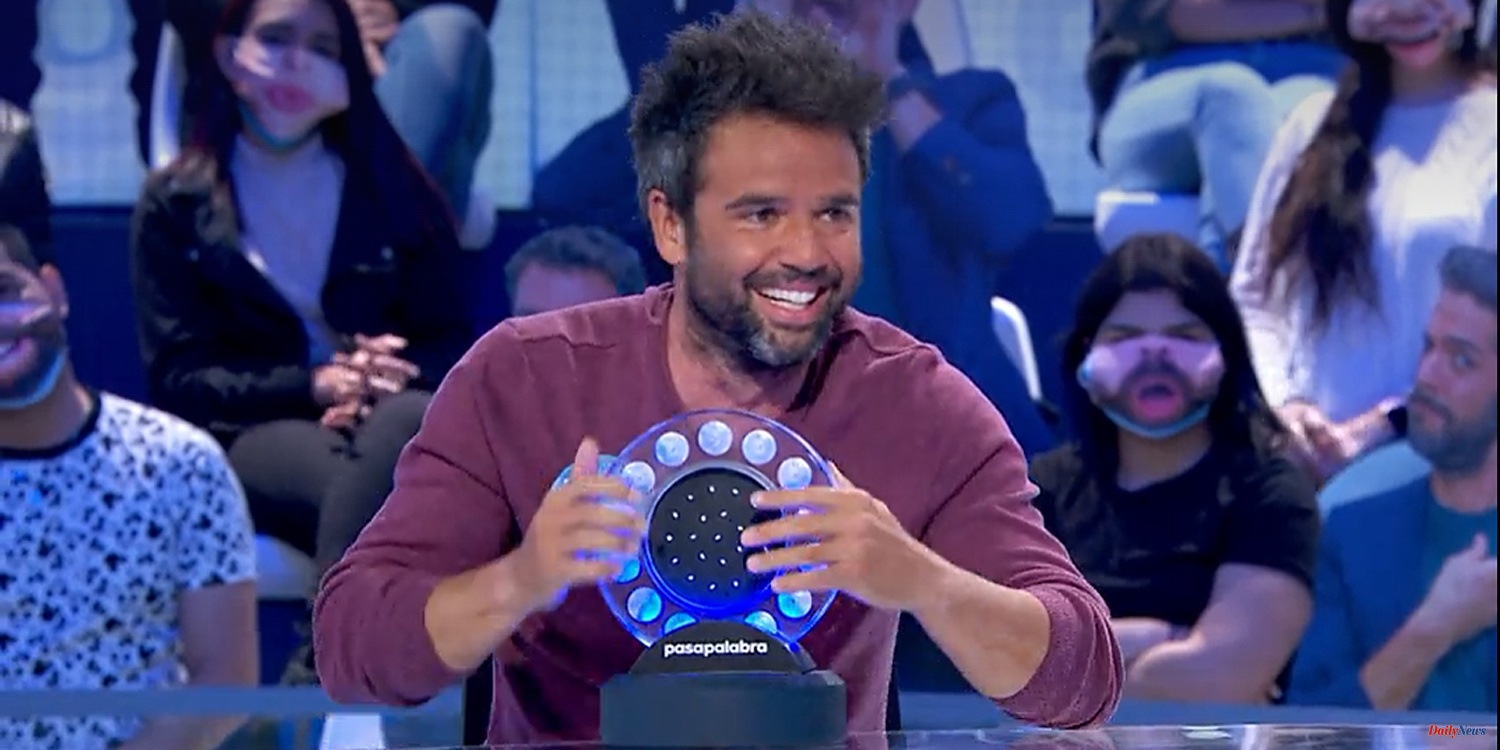Antena 3 has become the absolute audience leader in the last slot of the afternoon thanks to Pasapalabra.
The competition between Orestes Barbero and Rafa Castaño for the Rosco brings together more than four million viewers in front of the television every day.
Until next Wednesday the presenter Roberto Leal will have Raúl Peña, Cósima Ramírez, Nancho Novo and Paola Dominguín as guests in the contest.
Raúl Peña (Madrid, 1977) became known in the world of acting among the supporting actors of several successful television series. Peña was part of Compañeros, Un paso adelante and SMS, among other productions.
The Madrid actor in recent years has also collaborated in various episodes of series such as Periodistas, Hospital Central, Cita a Ciegas, La Señora, April 4: The Republic or The Secret of the Old Bridge.
In cinema, he has worked under the orders of Julio Medem, in the film Caótica Ana, and was also part of the cast of Gente pez and Cándida.
On stage, he has interpreted texts from classic works by Calderón, de la Barca, Zorrilla and Shakespeare. In addition, works by Fernán Gómez.
Last year Raúl Peña worked on the productions for television and Prime Video El Pueblo, Fuerza de Paz (TVE) and Escándalo: Relato de una obsesión (Telecinco).
Peña was also one of the funniest characters in the musical Beauty and the Beast, Lefou. "I spent a year preparing for the song I sang," the Madrid interpreter confessed. "After a thousand performances he was already doing it well," the actor said with some irony in an interview on Elmundo.es
"The challenge was to climb that step because as an actor I communicate by dancing, singing, and acting. Once you're inside, you realize that it's one of the most demanding genres because it requires a lot of work, and a talent that I didn't have," he added.
According to the criteria of The Trust Project












